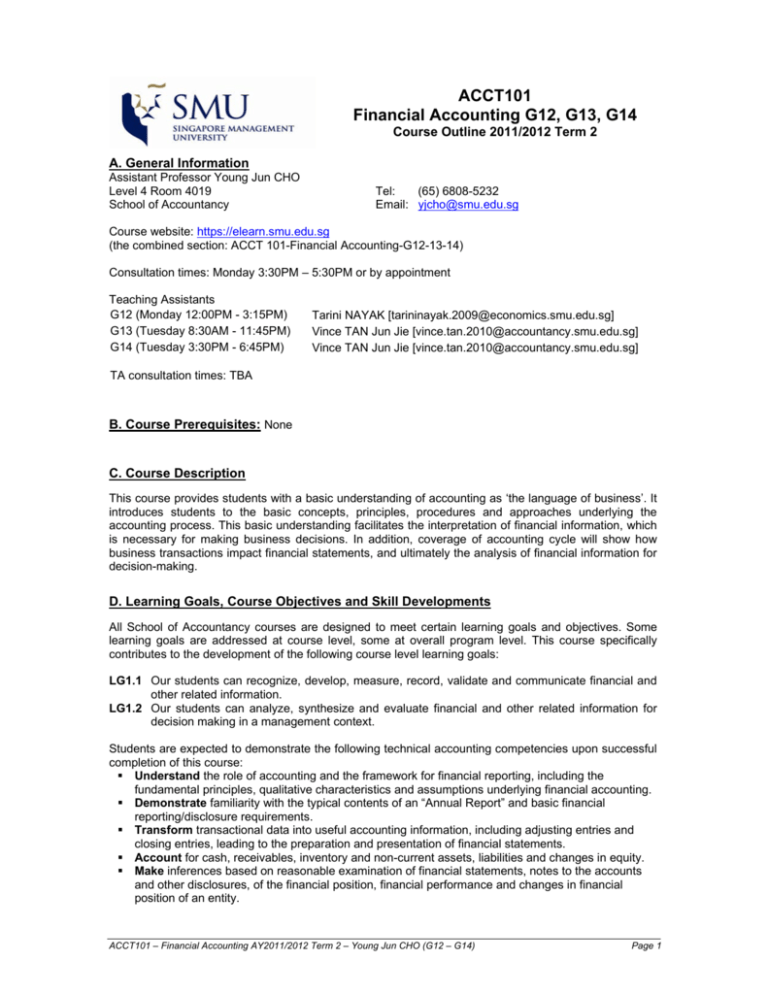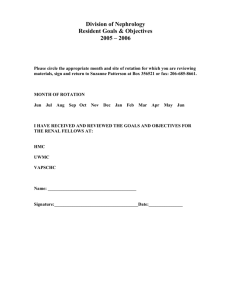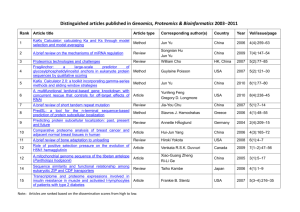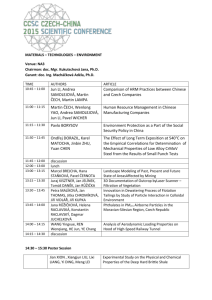
ACCT101
Financial Accounting G12, G13, G14
Course Outline 2011/2012 Term 2
A. General Information
Assistant Professor Young Jun CHO
Level 4 Room 4019
School of Accountancy
Tel:
(65) 6808-5232
Email: yjcho@smu.edu.sg
Course website: https://elearn.smu.edu.sg
(the combined section: ACCT 101-Financial Accounting-G12-13-14)
Consultation times: Monday 3:30PM – 5:30PM or by appointment
Teaching Assistants
G12 (Monday 12:00PM - 3:15PM)
G13 (Tuesday 8:30AM - 11:45PM)
G14 (Tuesday 3:30PM - 6:45PM)
Tarini NAYAK [tarininayak.2009@economics.smu.edu.sg]
Vince TAN Jun Jie [vince.tan.2010@accountancy.smu.edu.sg]
Vince TAN Jun Jie [vince.tan.2010@accountancy.smu.edu.sg]
TA consultation times: TBA
B. Course Prerequisites: None
C. Course Description
This course provides students with a basic understanding of accounting as ‘the language of business’. It
introduces students to the basic concepts, principles, procedures and approaches underlying the
accounting process. This basic understanding facilitates the interpretation of financial information, which
is necessary for making business decisions. In addition, coverage of accounting cycle will show how
business transactions impact financial statements, and ultimately the analysis of financial information for
decision-making.
D. Learning Goals, Course Objectives and Skill Developments
All School of Accountancy courses are designed to meet certain learning goals and objectives. Some
learning goals are addressed at course level, some at overall program level. This course specifically
contributes to the development of the following course level learning goals:
LG1.1 Our students can recognize, develop, measure, record, validate and communicate financial and
other related information.
LG1.2 Our students can analyze, synthesize and evaluate financial and other related information for
decision making in a management context.
Students are expected to demonstrate the following technical accounting competencies upon successful
completion of this course:
Understand the role of accounting and the framework for financial reporting, including the
fundamental principles, qualitative characteristics and assumptions underlying financial accounting.
Demonstrate familiarity with the typical contents of an “Annual Report” and basic financial
reporting/disclosure requirements.
Transform transactional data into useful accounting information, including adjusting entries and
closing entries, leading to the preparation and presentation of financial statements.
Account for cash, receivables, inventory and non-current assets, liabilities and changes in equity.
Make inferences based on reasonable examination of financial statements, notes to the accounts
and other disclosures, of the financial position, financial performance and changes in financial
position of an entity.
ACCT101 – Financial Accounting AY2011/2012 Term 2 – Young Jun CHO (G12 – G14)
Page 1
Analyse and communicate financial information to users.
Develop an ability to independently learn, unlearn and re-learn relevant updates on accounting
standards, corporate regulations and other financial reporting and disclosure requirements.
In addition, the various class activities are designed to further develop students’ analytical skills
[through case discussions and analysis], communication skills [through class participation and written
report], active learning skills [through the accounting project and other class exercises] and
professional ethics [through understanding role of ethics in accounting judgements]. Students must be
prepared to go beyond prescribed cases, readings and textbooks.
E. Learning Approach
The pedagogical approach to this course consists of three interlocking elements:
Instructor-facilitated Learning: Facilitation, Clarification, Synthesis
Individual Learning: Preparation, Analysis, Action
Collaborative Learning: Teamwork, Discussion, Sharing
Learning activities are planned to take into account these three elements of learning. Both the technical
learning and skills objectives will be developed through a blend of theory and practice. An
understanding of basic accounting knowledge on major elements of financial statements is a prerequisite
for any future studies of accounting. Thus, each topic will start with a session on basic technical
knowledge, followed by a practical session, using exercises, discussions, case analysis, and other class
materials to enforce students’ understanding of the topic.
The role of the instructor is to facilitate, provide clarification of critical concepts, not to read out pages
of the textbook to you. Often, it is important to be able to see the “trees from the forests” and synthesise
on why certain things matters are just as important as how specific processes/procedures are performed.
Students are reminded that their individual contribution to learning starts before class. Students should
prepare by pre-reading, analysing the materials/tasks/cases to be covered before coming to class and
actively participate in class discussions. Preparation is the prerequisite for analysis which will allow you
to take action in your individual learning.
Collaborative learning elements are developed through your contribution to your classmates learning
experiences, either through teamwork in tackling your project or other assigned tasks, and being willing
to contribute to class discussions and share your findings and work so others will benefit. Naturally,
your individual preparation, analysis and action will determine how much you are able to contribute to
collaborative learning.
F. Textbook and Other Resources
Primary Text: Harrison, Horngren, Thomas and Suwardy (2011),
Financial Accounting: International Financial Reporting Standards, 8th
edition, Pearson
Case Book: Suwardy (2010), Understanding Financial Statements: A
Case-Based Approach, Pearson Prentice-Hall
FA Learning Objects: Suwardy (2006), numerous e-learning resources
is available in D2L
There are numerous basic financial accounting books in the library that you can further consult for
additional references.
You may require access to www.asc.gov.sg or www.ifrs.org for selected insights into applicable
ACCT101 – Financial Accounting AY2011/2012 Term 2 – Young Jun CHO (G12 – G14)
Page 2
accounting standards.
In addition, a good summary of accounting standards (“IFRS in Your Pocket 2010”) is available from
IASPLUS http://www.iasplus.com/dttpubs/pocket2010.pdf. Whilst you will not be expected to know
all accounting standards in any great detail in your first financial accounting course, you should have
an appreciation of the relevant accounting standards covered in this course.
Due to the nature of the coverage on emerging issues, students will be expected to ready widely
from professional, business publications and newspapers.
G. Lesson Plan
Class sessions are of 3-hour duration and will include a review of study materials, class discussions
and other learning activities. All course materials will be published in e-learn.
A brief outline of course schedule is provided below.
Accounting Framework & Financial
Statements
Recording Business Transactions
Processing Accounting Information
Completing Accounting Cycle
Cash and Receivables
Merchandising Operations and Inventory
PPE (Property, Plant and Equipment) and
Intangibles
Liabilities
Owners’ Equity and Income Statement
Cash Flow Statement
Financial Statement Analysis
H. Assessment and Evaluation
To pass the course, students are required to obtain a TOTAL mark of 50% or better. The assessment
components are listed below:
Components
Weight
1. Class Activities
1-1) Homework (10%)
1-2) Participation (10%)
20%
2. Progress Assessment
2-1) Quizzes (10%)
2-2) Mid-term Exam (10%)
20%
3. Group Assignments
10%
A+
A
A-
>=86 %
83-85%
80-82%
B+
B
B-
77-79%
74-76%
70-73%
66-69%
63-65%
60-62%
4. Final Exam
50%
C+
C
C-
Sum
100%
D+
D
53-59%
50-52%
F
<=49%
1. Class Activities
Homework (10%)
• Assigned homework must be submitted before class starts and must be hand-written. Any
printed copy will not be accepted.
• The solutions to homework problems will be ready on course website after the collection of
homework.
Participation and Class Behavior (10%)
ACCT101 – Financial Accounting AY2011/2012 Term 2 – Young Jun CHO (G12 – G14)
Page 3
• A part of the course grade would be allocated to class participation and discipline. You will get
participation points by providing constructive feedbacks.
• Maintain proper discipline and conduct yourself in a responsible manner.
• Students are encouraged to raise questions and to participate in the class (e.g., suggestions,
comments, etc).
• There are several specific behavioural codes for this class: 1) Absolutely NO CELLPHONE
(including SMS), 2) Prudent use of notebook computer (you may use notebook computer only
for class related purpose), 3) Obtain permission from the professor for absence of the class in
advance.
2. Progress Assessment
Quizzes (10%): Four short quizzes will be given in class. There will be no make-up quizzes;
however, the lowest of the four quiz scores will be dropped before calculating your overall grade.
Mid-term Exam (10%): There will be a closed-book midterm exam worth 10% of total grade.
3. Group Assignments (10%)
Teamwork is an essential quality for professionals in the business world. In this class, you will have
the opportunity to work within a team extensively.
Students will be assigned into groups (of 4-6 members) for case analysis. Further information on
group assignments will be provided as the term progresses.
4. Final exam (50%)
The final exam is on Monday, 23 April 2012 (from 8:30AM to 11:30AM).
The exam covers topics from the entire course and is closed-book.
Requests by students to take the final exam on other than the officially scheduled date/time will not
be approved except under extremely extenuating circumstances entirely beyond the student’s
control. Students who believe they may be unable to take the final exam on the scheduled
date and time should not enrol for this course this term.
I. Other Course Policies
1. Academic Integrity
All acts of academic dishonesty (including, but not limited to, plagiarism, cheating, fabrication,
facilitation of acts of academic dishonesty by others, unauthorized possession of exam questions, or
tampering with the academic work of other students) are serious offences.
All work (whether oral or written) submitted for purposes of assessment must be the student’s own
work. Penalties for violation of the policy range from zero marks for the component assessment to
expulsion, depending on the nature of the offense.
When in doubt, students should consult the instructors of the course. Details on the SMU Code of
Academic Integrity may be accessed at http://www.smuscd.org/resources.html.
2. Quiz / Exam Policy
Students should not share the quiz/exam contents with others (including students in other sessions)
until exam grading has been fully completed.
There will be no make-up for quizzes and exams unless a well-written medical document for true
emergency is provided.
3. Copyright
Any copy-righted materials posted on the course website or distributed in class are for students
learning purpose only.
The copyrights belong to the respective authors/publishers. Students’ usage of the material is
governed by the law.
ACCT101 – Financial Accounting AY2011/2012 Term 2 – Young Jun CHO (G12 – G14)
Page 4
4. Other comments
The general approach of this course is lecture, problem-solving, and discussion of cases relevant to
the topic. Students who read the chapter ahead of attending class will benefit most from the class
presentation. As an alternative, students may study the lecture notes ahead of the class.
Please check the course website regularly in order not to miss important announcements. Although
major announcements will be made both in classroom and course website, it is the sole
responsibility of the students to find out what has been announced during their absence from class.
I strongly encourage you to let me know any problems related to this course as soon as they
arise. Please do not allow problems to accumulate because it will be more difficult to solve them
later. In this course, each chapter builds on the previous chapters. It is like constructing a building –
the foundation first, then the ground floor, then the first floor so on. If you have problems in the
earlier parts, you will not be able to understand the later parts. Moreover, the level of difficulty
increases as lectures progress. It is much easier to get high marks in the earlier quizzes, but it
would be difficult to get even a decent grade in the final exam. Hence, it is very important to be
serious with your studies right from the beginning.
Prepared by Young Jun CHO, 21 Dec 2011
Approved by Themin SUWARDY, 27 Dec 2011
ACCT101 – Financial Accounting AY2011/2012 Term 2 – Young Jun CHO (G12 – G14)
Page 5


![[#DASH-191] Replace JERSEY REST implementation by](http://s3.studylib.net/store/data/005918124_1-33fb89a22bdf4f7dbd73c3e1307d9f50-300x300.png)

